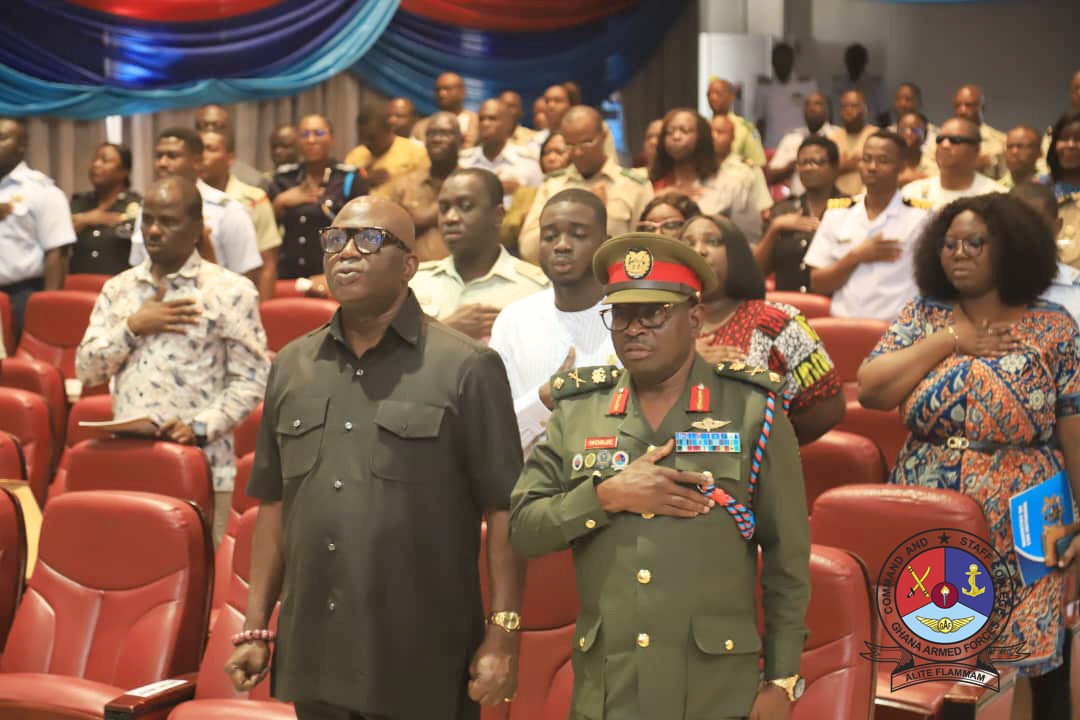
GHANA ARMED FORCES COMMAND AND STAFF COLLEGE CONCLUDES 2025 CONFLICT AND CRISIS MANAGEMENT COURSE
The Ghana Armed Forces Command and Staff College (GAFCSC) formally concluded the 2025 edition of the Conflict and Crisis Management Course (CCMC) with a closing ceremony held on Friday, 25 July 2025 at Hamidu Hall, Teshie.
The Deputy Minister for the Interior, Honourable Ebenezer Oklertey Terlarbi who was the Guest of Honour for the occasion outlined the devastating impact of conflicts and crises in Ghana which ranges from loss of lives and destruction of property to the diversion of national resources. He cited examples such as chieftaincy and ethnic conflicts, religious tensions, natural disasters and illegal mining (galamsey), noting how these persistent issues continue to burden the state. He emphasised that capacity-building programmes like CCMC organised by GAFCSC are timely, commendable and deserve continued support.
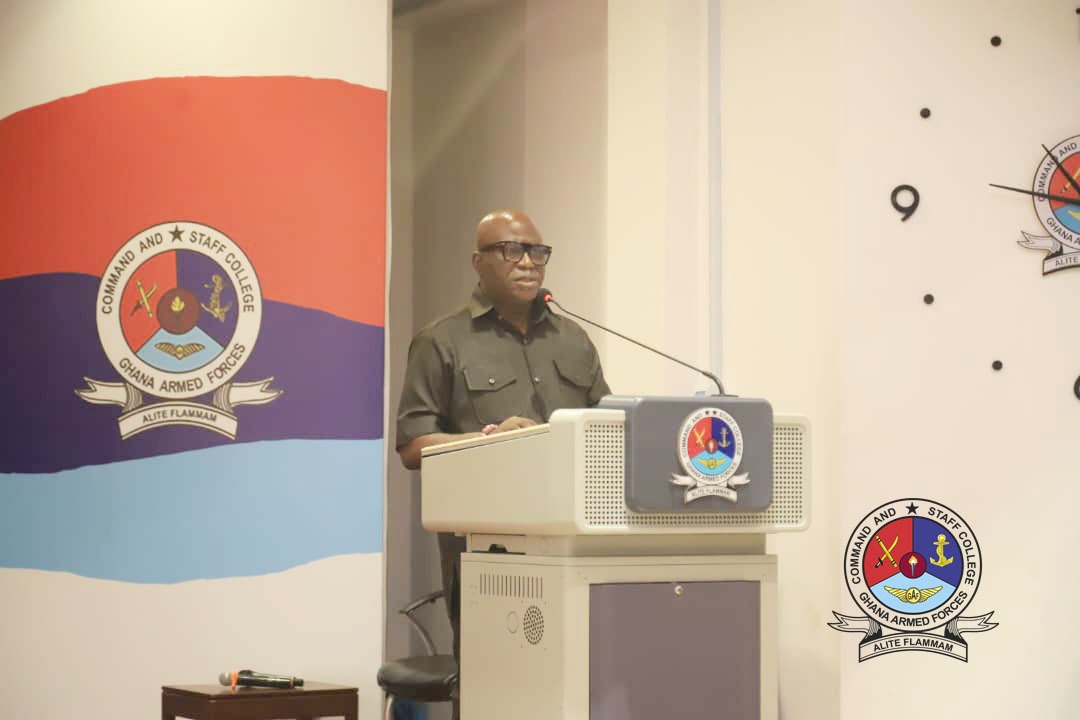
Hon. Terlarbi identified inter-agency collaboration as a critical goal of the course, pointing out that no single institution can effectively manage crisis alone. He noted that building strong networks across agencies is essential to improving national response mechanisms.
He also drew attention to the ethical and moral responsibilities of crisis responders. In high-stress situations, responders are required to act with integrity, empathy and professionalism. He commended the course facilitators, which includes both academics and experienced field practitioners, for enriching the training content and delivery.
During the closing ceremony participants presented a case study titled “Examining Ghana’s Crisis Management Efforts in Bawku towards Building Resilience and Promoting Peace.” The presentation examined the complexities of managing conflict in a region plagued by recurring violence and highlighted the need for inclusive strategies and community engagement.
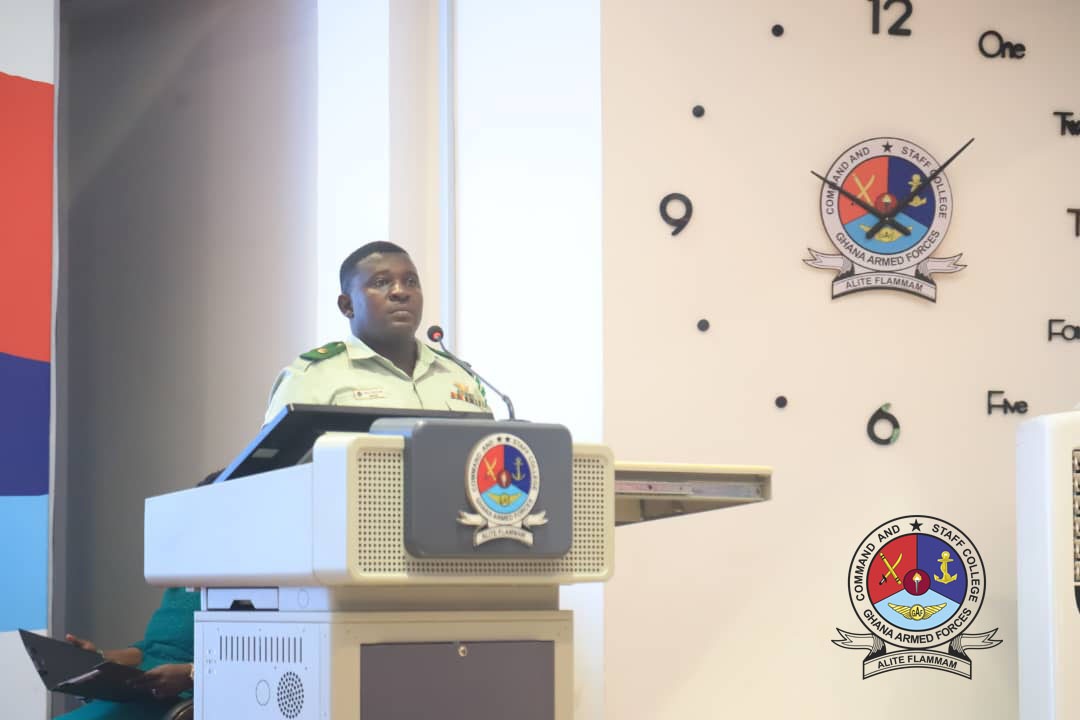
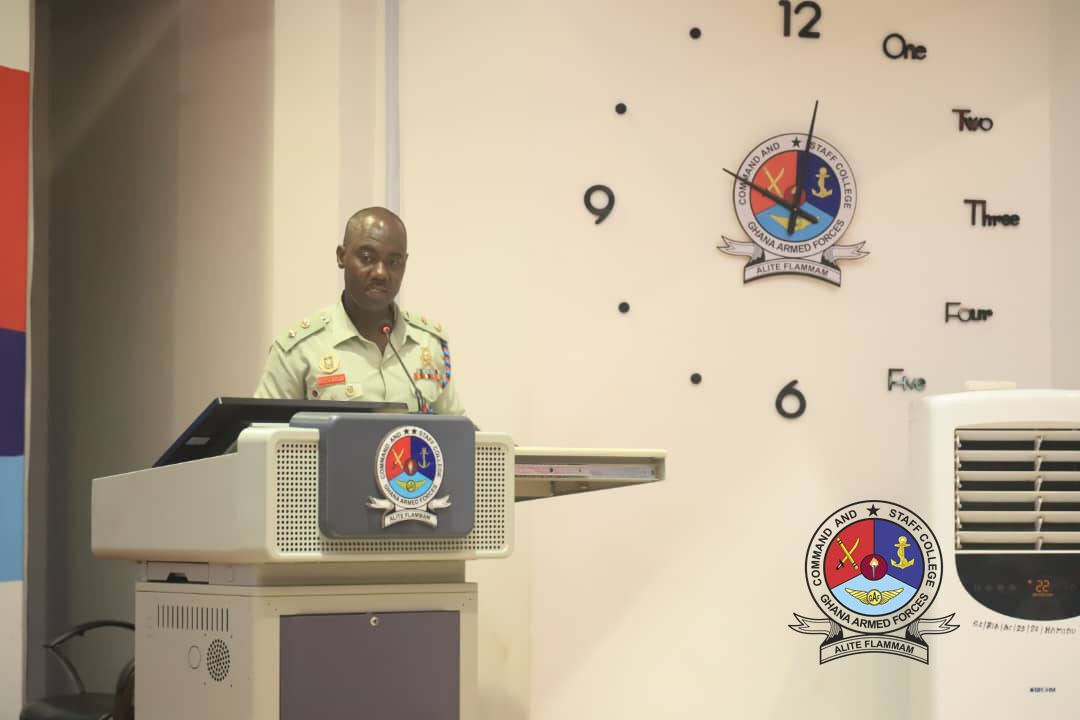
A key message from the presentation was that effective crisis management should go beyond strategy and planning to incorporate the human, ethical and moral dimensions of leadership and response. Participants were reminded that during crisis communities endure trauma while responders are faced with difficult decisions that demand compassion and a strong sense of duty.
The presentation also emphasised resilience as a vital element of crisis management and the ability of communities to recover and adapt in the face of disruption. In regions like Bawku, fostering sustainable peace requires a coordinated and inclusive national approach to conflict resolution and risk reduction.
Participants recommended enhanced collaboration between the National Peace Council, the National Security Council Secretariat, the Ministries of Defence, the Interior and Information. They advocated for proactive dialogue and inter-agency coordination as key tools in anticipating and managing future crises. At the end of the presentations certificates of participation were awarded to participants.
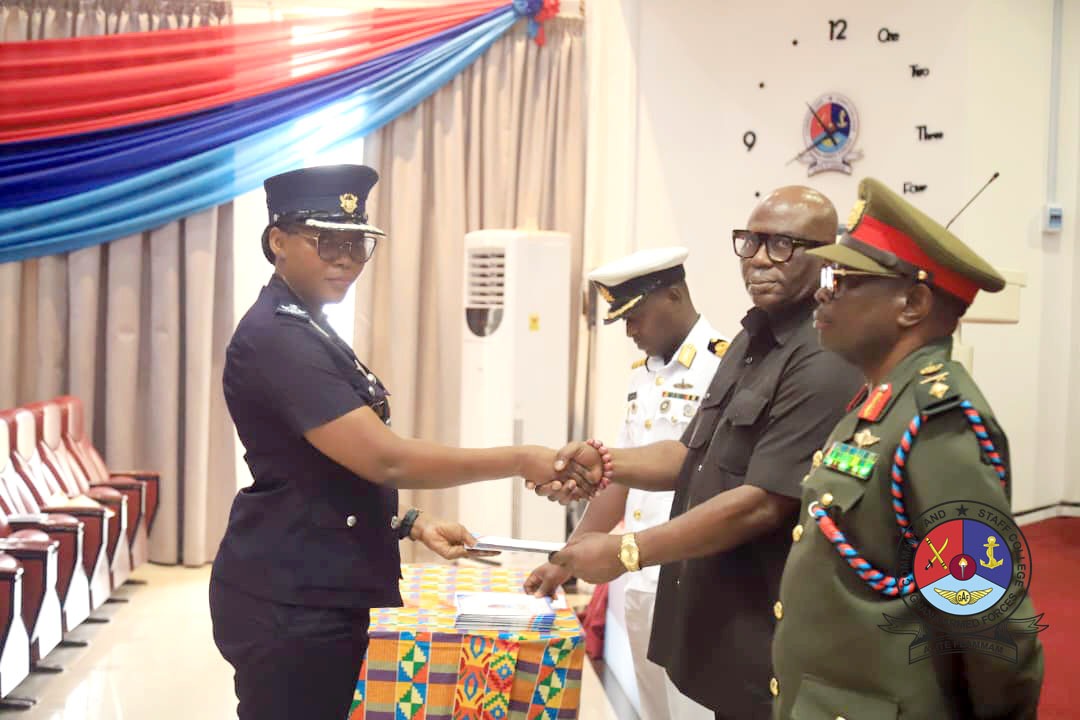
The ceremony was honoured by the Deputy Minister for the Interior, accompanied by the Acting Commandant, Brigadier General Jackson Wonje, the Dean of the Academic Division of College, Directors and Academic Staff.
By Lily Brenda Gadugah